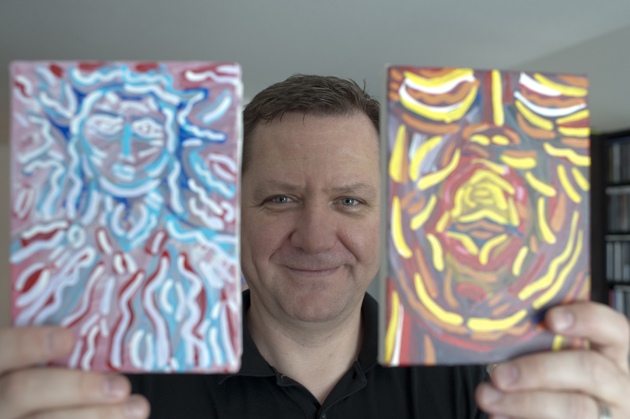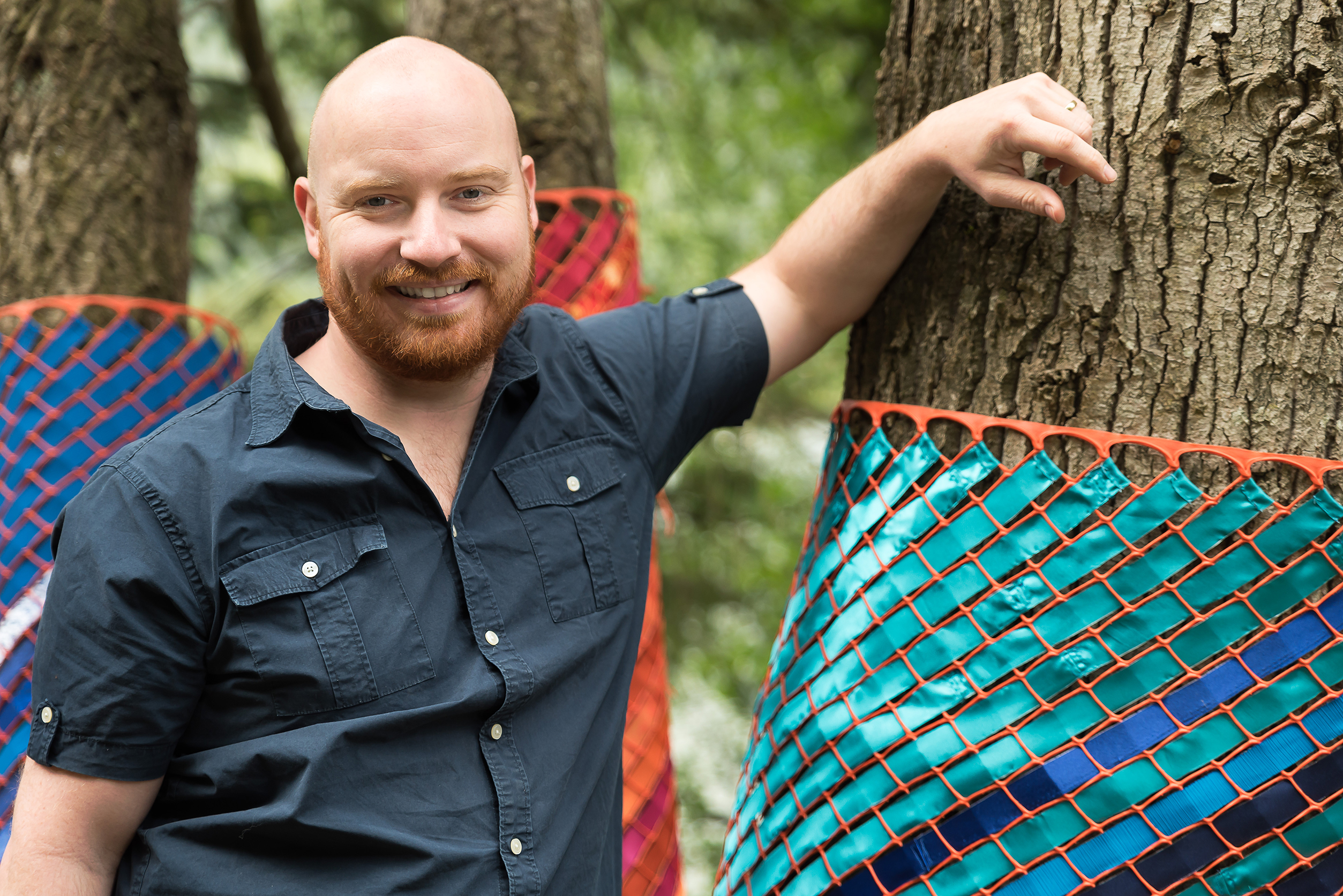Skookum Soundoff
An opinion piece by Carl Peters, who teaches English, visual arts, and art history at UFV.
University Without Condition [1] or the University of Disaster:[2] Radical Pedagogy and the Scholar as Artist
The pressures on us to turn classrooms into writing labs, semiotics, response theory, myth or enclaves of National Literature are symptomatic of the deformed state of this business. (Jerry Zaslove)
I believe that we are seeing the worst effects of democracy and capitalism, that trivia is pushing out scholarship, that fun is pushing out curiosity. If you mention Homer, the majority of people will think that you are referring to a TV cartoon character. Vocabularies have, apparently, become much smaller. One can say that young people are voluntarily settling for a smaller world. But, I think that there are forces in the world today that are making money from induced ignorance. (George Bowering)
Scholar Jerry Zaslove saw, already in 1979, as is evidenced by his comment above, that “globalization” was bad for “business” – our business. That is to say, bad for “literature.” When they asked Willie Sutton why he robbed banks his response was quick: “Because that’s where all the money is.” My intuition is that Jerry Zaslove perceived that the university was becoming a bank. Ask any student why they’re here and the quick response is: to get a job. No one begrudges any one their ethic here – to work. But somewhere between 1979 and 2011 something was lost. And I know, though, that the university my professors and mentors knew is not the university today. OK, here goes.
HOW TO PLAY CAREER, AND WIN
Someone you know once asked me “How did you survive?”
I have struggled, as you may or may not know, with the implied (and at other times palpable) hierarchy in place at any given institution. I teach the craft of thinking, which, for me, is “deconstruction” and the turning and turning over again of certain concepts and signs. The irony is that deconstruction is a product (commodity) of the institution, and never as good as what the artists and poets are doing anyway. I have tried in my life to be, as a scholar, an “artist” too – to deliver to my students a certain lyrical sensibility – certain madness or, putting it more lightly, “enthusiasm.”
TO MAKE A DADAIST POEM
- Take a newspaper.
- Take some scissors.
- Choose from this paper an article of the length you want to make your poem.
- Cut out the article.
- Next carefully cut out each of the words that makes up this article and put them all in a bag.
- Shake gently.
- Next take out each cutting one after the other.
- Copy conscientiously in the order in which they left the bag.
- The poem will resemble you.
- And there you are – an infinitely original author of charming sensibility, even though unappreciated BY Artist, is, you, good, what, a, it, it, a, a, a, a, it, modern, Explanation.”, a describe it make of it, it makes a composition, it confuses, it shows, it is, it looks, it likes it as it is, and this makes what is seen as it is seen. Nothing changes from generation to generation except the thing seen and that makes a composition. (516)
As a scholar I take pride in the courses that I research and teach.
My research, writing and teaching are grounded in an interdisciplinary approach to literary, visual arts and aesthetic critiques like structuralism, deconstruction and avant-garde poetics. In all of my classes and research I continue to explore various manifestations and iterations of modernism that have appeared and continue to evolve at different historical times and places. As a result of this critical praxis, I draw on a great deal of visual art and film in the reading and interpretation of literary work in its local, North American, British and European social and political contexts.
In pursuing these intellectual, philosophical and aesthetic investigations, I am always aware that modernism as a “style” in the arts is both historically and culturally a distinctly European, post-industrial phenomenon. However, the importance of nurturing an understanding of its ongoing evolution as a cultural construct is that it has become dominant in shaping our emergent culture of globalism as it continues to encounter the many forms of its “other” in non-European, pre-industrial or emerging industrial cultures.
I approach my classes the same way I approach my research – with an active interest in the aesthetic experience of graphic and textual modernism from Dadaism to contemporary art. This means that all of my courses and scholarship foreground and emphasize international and cross cultural iterations of modernism and philosophies of art and thought.
I continue to make this study and its related materials visible and accessible to students at UFV, consistently creating courses that reflect the history and practice of modernism in the public sphere in which we as modern citizens interact.
THE SIMULATION INDUSTRY
My comments are informed by two important critical, if not polemical, texts; the first is Jean Baudrillard’s Why Hasn’t Everything Already Disappeared? The second is Paul Virilio’s manifesto on reading modern art entitled Art and Fear. Both Baudrillard and Virilio are interested in extreme phenomenon; the more we talk about literacy and the lack of it the more crowded my mailbox gets in the English department with compact disks featuring the newest and most “accessible” and the most “simplistic” approaches to writing and teaching; the emphasis is on the way literacy has been institutionalized into illiteracy. We must make art unreadable. If my “sound” today is beginning to read like a punked-up version of T.S. Eliot’s “Tradition and the Individual Talent” – good!
The anxiety of faculty, the ambition for rank and tenure, is a more aloof version of the student’s anxiety. Faculty want their rank; students want good grades. I’m beginning to ponder that perhaps I’m here to break the mirror, the ground, “the frozen sea within us,” like a minor in a mine (Kafka). On the other hand, one must step back and stare down the medusa of progress with a mirror (Grey Ecology).
WORKS CITED
Adorno, Theodor W. Aesthetic Theory. (Trans.) Robert Hullot-Kentor. Minneapolis: The
University of Minnesota Press, 2006.
Baudrillard, Jean. Passwords. (Trans.) Chris Turner. Verso: London and New York, 2003.
—. Why Hasn’t Everything Already Disappeared? (Trans.) Chris Turner. London, New York and Calcutta. Seagull Books, 2007.
George Bowering interview with Judith Fitzgerald . 3 May 2011
<http://www.theglobeandmail.com/news/arts/books/in-other words/article1675695.ece>.
Kafka, Franz. “Letter to Oskar Pollak.” Letters to Friends, Family and Editors. (Trans.) Richard and Clara Winston. New York: Schocken Books, 1977. 15-16.
Stein, Gertrude. “Composition as Explanation.” Selected Writings of Gertrude Stein. Ed. Carl Van Vechten. New York: Vintage Books, 1972. 511-523.
Tzara, Tristan. Seven Dada Manifestos and Lampisteries. (Trans.) Barbara Wright. New York: Calder Publications, 1992.
Virilio, Paul. Art and Fear. (Trans.) Julie Rose. London and New York: Continuum Press, 2006. 15.
—. Grey Ecology. (Trans.) Drew Burk. New York: Atropos Press, 2009.
Zaslove, Jerry. “Look! We Have Come Through . . . Then and Now.” West Coast Review Volume XIII/4 (April 1979): 11-13.
This article is featured in the fall 2011 issue of UFV Skookum magazine






